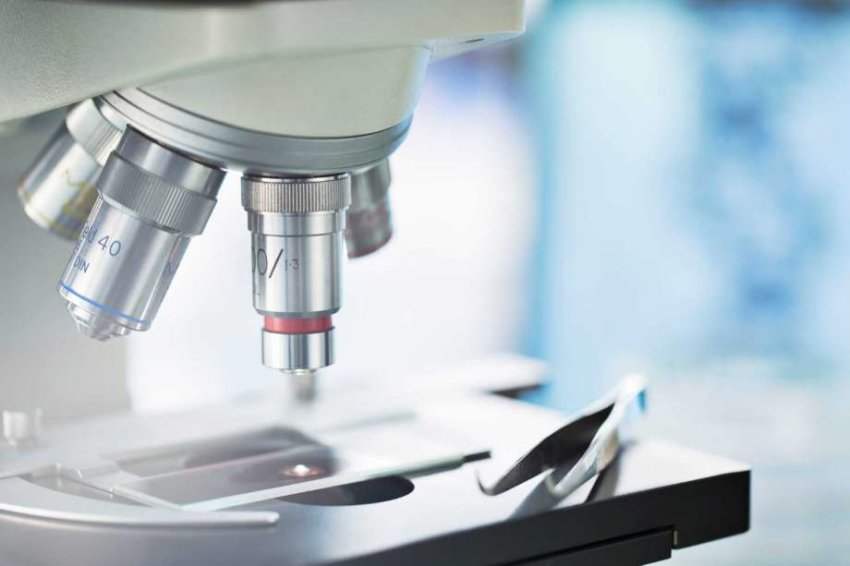Studies target immunological and epigenetic pathways to fight tumors
Trustees of the Max and Minnie Tomerlin Voelcker Fund voted to give Young Investigator Awards totaling $1.35 million to three rising stars at The University of Texas Health Science Center at San Antonio.
The junior faculty members are in the School of Medicine and study cancer. Each will receive $450,000 over the next three years to develop innovative lines of research to make preliminary discoveries that may result in bringing substantial National Institutes of Health-funded research to San Antonio.
“Voelcker Fund awards help junior scientists to establish a track record of success,” William L. Henrich, M.D., MACP, president of the Health Science Center, said. “The focus of our awards in 2016 is cancer, a disease that is, in its complexity, a thousand diseases.”
“The Voelcker Fund is impressed with the quality of the investigators and their research,” said Banks M. Smith, Voelcker Fund Trustee. “We know strides will be made to help find cures for cancer.”
The latest Voelcker Fund Young Investigator Awards are supporting:
—Elizabeth Leadbetter, Ph.D., associate professor, Department of Microbiology and Immunology;
—Xiao-Dong Li, M.D., Ph.D., assistant professor, Department of Microbiology and Immunology;
—Kexin Xu, Ph.D., assistant professor, Department of Molecular Medicine, and member of the Cancer Therapy & Research Center at the UT Health Science Center.
Dr. Elizabeth Leadbetter
Vaccines work because they teach the body to remember – and attack – a particular disease. Dr. Leadbetter is studying how to enhance the immune system’s “memory” to identify and attack a disease such as cancer by using nanoparticles that contain a special lipid.
According to Dr. Leadbetter’s initial research, it appears that the lipid-containing nanoparticles activate B cells and natural killer T (NKT) cells to work together to enhance the body’s “memory” of the invading disease. She seeks to harness this to enhance the memory and detection of precancerous changes in the body to prevent the spreading of the disease.
Dr. Xiao-Dong Li
The DNA of tumors is very different from the DNA of healthy cells. Dr. Li has discovered a molecular pathway the immune system uses to recognize and attack abnormal DNA. A vaccine to amplify or boost this pathway could be very effective in fighting cancerous tumors, in addition to fending off viral threats.
Dr. Kexin Xu
Dr. Xu seeks to understand the link between cancer and metabolic diseases such as obesity and diabetes. She focuses on epigenetics, the study of biological processes that switch genes on and off without altering the genetic code itself. Epigenetic changes may be prompted by the environment, diet, stress, aging and other factors.
Dr. Xu is investigating how one particular metabolic pathway orchestrates the epigenetic machinery, which results in abnormal epigenetic patterns in cells, causing cancer and diabetes. Reversing these changes could cure one or both diseases.
Dr. Xu completed her postdoctoral training at the Dana-Farber Cancer Institute and Harvard Medical School. In 2015 she received a $250,000 Rising STARs Award from The University of Texas System Board of Regents and a $2 million new faculty recruitment award from the Cancer Prevention & Research Institute of Texas. STARs stands for Science and Technology Acquisition and Retention.
Voelcker Fund support
Since 2007, the Max and Minnie Tomerlin Voelcker Fund has contributed more than $18 million to the Health Science Center.
In addition to the Young Investigator Awards, the Voelcker Fund supports other initiatives at the Health Science Center such as the Voelcker Biomedical Research Academy, which provides an immersive biomedical research education and college preparatory program for San Antonio-area high school students.
The Health Science Center also benefits from two endowed chairs established by the Voelcker Fund. The Max and Minnie Tomerlin Voelcker Distinguished University Chair in Targeted Cancer Therapy is held by Tim Huang, Ph.D., professor and chair, Department of Molecular Medicine. The Max and Minnie Tomerlin Voelcker Endowed Chair in Cancer Health Disparities and Outreach is occupied at the Cancer Therapy & Research Center by Amelie G. Ramirez, Dr.P.H., professor and interim chair of the Department of Epidemiology and Biostatistics and director of the Institute for Health Promotion Research. Dr. Ramirez is a member of the prestigious National Academy of Medicine.
The University of Texas Health Science Center at San Antonio, with missions of teaching, research and healing, is one of the country’s leading health sciences universities. Its schools of medicine, nursing, dentistry, health professions and graduate biomedical sciences have more than 33,000 alumni who are advancing their fields throughout the world. With six campuses in San Antonio and Laredo, the university has a FY 16 revenue operating budget of $801.8 million and is the primary driver of its community’s $30.6 billion biomedical and health care industry. For more information on the many ways “We make lives better®,” visit www.uthscsa.edu.


